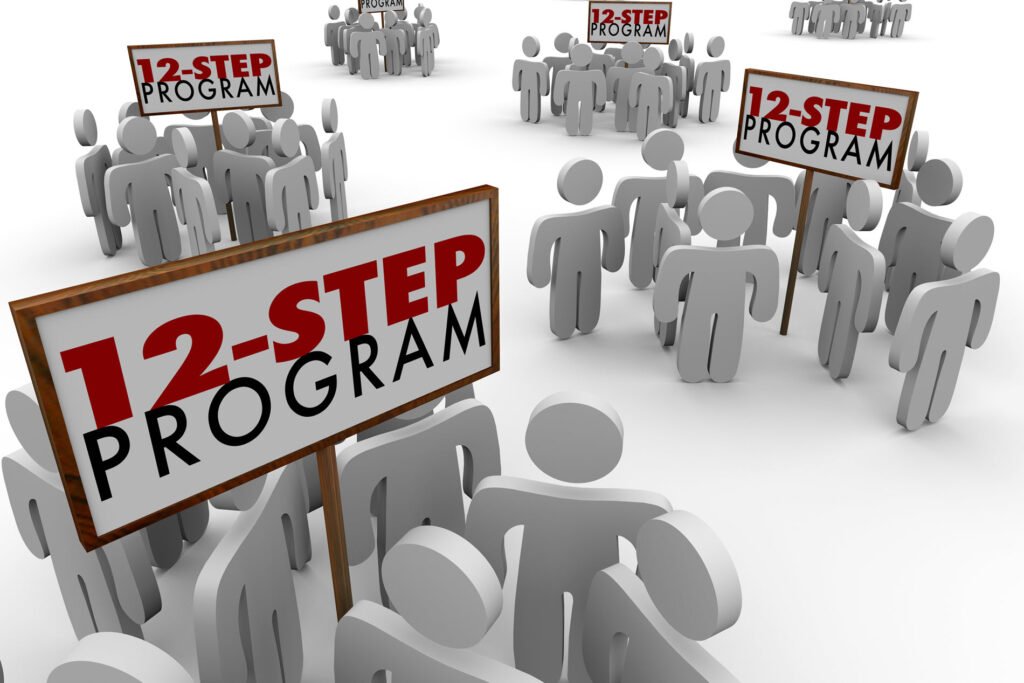When you imagine going to AA meetings, you may think of a fairly simple set up. People introducing themselves as alcoholics and telling their stories. Indeed, the official purpose of AA meetings is for members to “share their experience, strength, and hope with each other that they may solve their common problem and help others to recover from alcoholism.” Almost all meetings have certain characteristics in common. The serenity prayer starts the proceedings. Some AA material is read and people share. Finally, there is almost always coffee involved!
However, aside from these common characteristics, meetings can differ greatly. Indeed, as the fellowshipThis refers to the members of AA and the bonds of support between them. It is this fellowship that allows addicts to share their stories and accept each other in a world that is not always understanding. More has grown and evolved, different types of meetings have been pioneered to suit its growing needs. Here are the main types of meetings currently open to attendance.
Open/Closed Meetings:
The fellowship takes the anonymityAlcoholics Anonymous and all the 12 step groups modeled after it, protect the anonymity of its members. Members are forbidden from disclosing the identity of other addicts to outside sources or identifying themselves with the group on any form of public media. The idea behind this is to focus on the... More of its members very seriously. As the Twelve Traditions tell us: “Anonymity is the spiritual foundation of all our Traditions, ever reminding us to place principles before personalities.” It is there to protect the identity of addicts; this is particularly important to those who are new to the programThis refers to any official course of treatment for addiction. This could be anything from in-patient facilities, to 12-step programs to harm-reduction programs. More. Therefore, most of its meetings are only open to alcoholics interested in recoveryThe process by which addicts attempt to break the hold a certain substance or behavior has on their lives. This can refer to participation in a wide variety of methods. What they all have in common, is a sense that life is improving and the addict is regaining control. More from addiction.
However, in recent years the stigmaEvery addiction carries with it a certain amount of disapproval, which can also lead to discrimination. This is known as stigma. This can vary greatly following the specific addiction. More surrounding alcoholism has decreased. Correspondingly, AA’s efforts at community outreach have increased. Many AA groups conduct regular open groups. These cater not only to individuals who wonder if they are alcoholics but also to members of the community who wish for more information on the diseaseSome refer to addiction as a disease, comparing it to physical ailments. There are similarities, as both have a detrimental influence on body and soul and are treatable through medical means. More and fellowship.
Non-alcoholics are welcome to attend, although they are customarily expected to act as observers and not participants. You may find academics or writers researching alcoholism. And you may run into family members supporting their loved ones through recovery. Members of the fellowship wishing to protect their anonymity can choose to avoid these meetings, but many are happy to attend.
Speaker Meetings:
Over the years a sort of speaker circuit has emerged in Alcoholics Anonymous. Speaker meetings often center around a speech given by an addictAn individual with an unhealthy dependence on a substance or behavior. An individual remains an addict even years into recovery and must therefore remain active in recovery. Read more about drug & alcohol addiction & withdrawal at Withdrawal Info. More with a proven record of giving engaging public talks. These typically start with wild and entertaining stories of childhood and addiction days. They may include tragic events the speaker has overcome through struggle. They will invariably and end with an inspiring message aimed to help recovering addicts overcome their obstacles. These meetings usually provide a Q&A section before the serenity prayerThe prayer is: “God, grant me the Serenity to Accept the things I cannot change, Courage to change the things I can, and Wisdom to know the difference. It is almost universally recited at 12-step meetings and is meant to foster acceptance of the will of the Higher Power and encourage serenity amon... More.
Big Book Meetings:
Many meetings include readings from the Big Book of AA. However, a Big BookThe basic text of AA was the first to methodically introduce the 12-steps. It is still the main source for meetings and is quoted in just about all AA and other 12-step literature. the Library of Congress named it one of the 88 “Books that shaped America.” Read more about the Big Book of AA. More meeting focuses very narrowly on a specific part of the book. Normally a substantial part of a chapter. The readings are done collectively, with each reading a section before passing the torch. After the specified readings are completed, members are invited to share. However, they are asked to keep their shares relevant to and in keeping with the allotted section of the Big Book. These meetings are equally useful to newcomers reading this material for the first time and for veteran addicts seeking to reinforce their recovery.
Step/Traditions Meetings:
These meetings normally focus on one specific step. They begin with the reading of the material on the relevant step from the Twelve Steps and Twelve Traditions. The members will then recount their experiences with that specific step and what it meant to their wider recovery. Their shares will often refer specifically to the material read earlier. Members who have not yet worked the steps or have not reached the step addressed here are welcome to attend and discuss the readings as well.
The traditional meetings are quite similar to their step’s equivalents. However, these focus on the latter part of the Twelve StepsThe term "12 steps" refers to the core principles of the approach to addiction exemplified by Alcoholics Anonymous and other similar groups. The 12 steps are a set of guidelines designed to help individuals overcome addiction and rebuild their lives. They were created by the founders of Alcoholics A... More and Twelve Traditions. In these meetings, the discussion often centers on more than one tradition or the role of the traditions in recovery more generally.
Beginners Meetings:
Beginners are welcome to any format of meeting they wish to attend. However, the beginner’s meetings are a great place to start, and every addict early in recovery should attempt to attend one. In these meetings, the more experienced members share their “origin stories.” They will then recount their experiences in addiction and how they felt in the early stages of recovery. All this is intended to make the new memberAn individual who attends 12-step program meetings and has the desire to overcome addiction. More feel supported and understood. Towards the end of the meeting, new members are allowed to share their experiences.
Topic/Discussion Meetings:
A chairman is appointed for these meetings, and he or she is charged with picking a topic for discussion. This may hinge on a select reading, but there are no hard and fast rules. The leader will set the tone by discussing the issue for up to fifteen minutes. At this point, the floor will be opened to shares. However, discussions throughout will remain focused on the topic at hand.
Reflections Meetings:
This useful recent addition to the types of meetings focuses on meditation and prayer. Step 11 calls for daily prayer and meditation. However, for many members, this is a vague process. Therefore, for many members, this is an aspect of recovery best dealt with collectively. Reflections meetings allow members to discuss and refine their connection to their Higher Power in a more structured manner.
Agnostics/Atheist Meetings:
These meetings are designed for individuals who are not comfortable with the focus on a traditional deity in AA. In these meetings, the literature and tools of the fellowship are utilized without the religious elements. Having both more religion-focused and less religious meetings allows the greatest number of addicts to feel at ease in meetings.
With these options, you are sure to find a meeting to suit your needs. Try to attend as many meetings as you can. It works!







